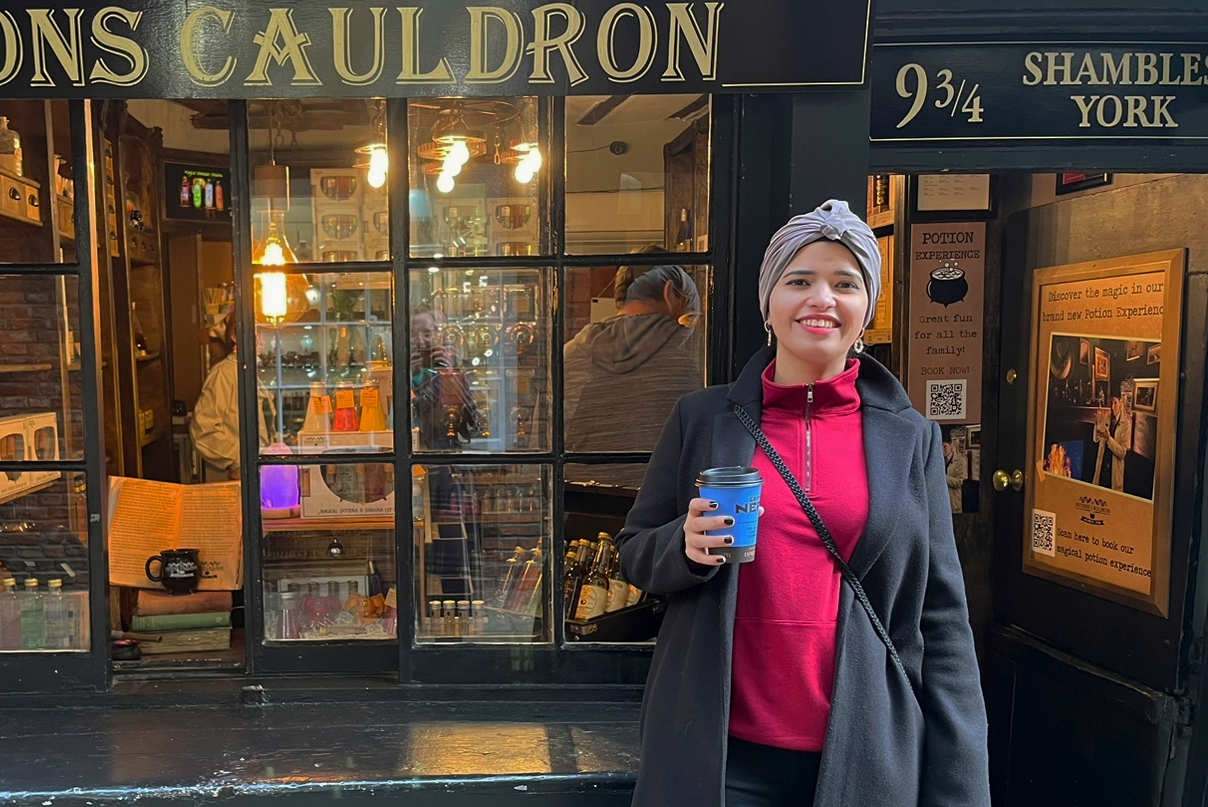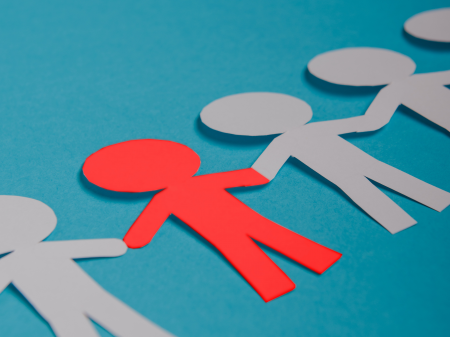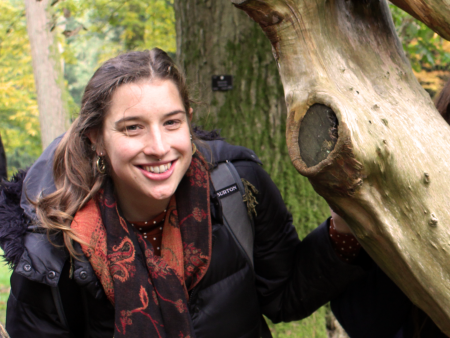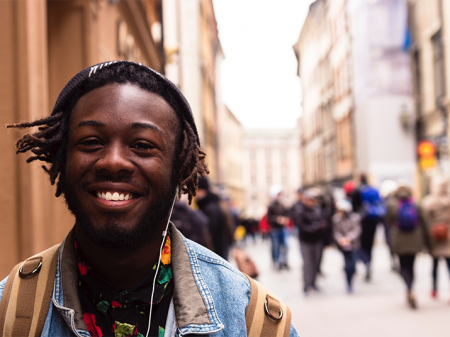
Lived experience expertise at ACH | Marwa's Story
Meet Marwa, ACH’s Support and Integration Officer based in Wolverhampton!
Marwa’s lived experience of growing up in a refugee camp has made her passionate about a career supporting people from a refugee background, and an expert in issues faced by refugee and migrant communities. Marwa has recently joined ACH, working part-time alongside her Master’s degree.
Keep reading to find our Marwa’s story and her ambitions for the future...
I grew up in a remote refugee camp in northern Jordan. Over 38,000 people call 0.75 square kilometers home, this fact alone made the United Kingdom feel enormous to me. To further my goal of making a positive difference in the lives of refugees everywhere, I came here to earn a master’s degree and gain professional experience. Everyone deserves to feel safe, even those fleeing their homes. It's difficult to leave Gaza camp, and I always knew that I would need to put in double the effort of other people to achieve even half of their success.
For the IETLS and scholarship applications, I put in over eight hours a day of study. I was able to see the world for the first time because of the Said scholarship, which completely altered my life course.
The inhabitants of Gaza Camp aren’t legally recognized by any country, we are like visible ghosts. We don’t have a Palestinian passport, only a 2-year temporary Jordanian passport, especially for people from Gaza. So, in the eyes of the law, we’re neither Palestinians nor Jordanians, we belong to no country. The camp is overcrowded and bursting at its seams, but restrictive government policies have made escape nearly impossible. Gaza Camp residents are not allowed to be officially employed, or schooled nor are they provided health care. They live on the aid provided to them by the UN, and unfortunately, when the Syrian refugees came to Jordan, most of this help was transferred to them and the camp was left in extreme poverty. The lack of opportunity and pressure led to a restless population and crime, alcohol and drugs increased as the camp tried to cope.
Even though I speak decent English, my tongue was tied the first few days as I stood in front of the train station in Birmingham with my bags and stared at the enormous structures. I had a hard time communicating in English. Because of my Hijab, I thought I will be marked and wouldn't be able to participate in any extracurricular activities, but I found that people were acclimated to it and that religions were respected in Birmingham. I was pleasantly surprised by how friendly everyone was. The amount of diversity and harmony among people from different races and backgrounds, even languages and accents surprised me, and looking at the future this is the perfect community for me. I saw people of different backgrounds and religions working together in Starbucks, a sight that for me reflected the dream community we’re looking for. Where you are accepted, loved, and treated equally no matter your differences. The UK succeeded to create this community in Birmingham so far.
Moving here was rewarding in other ways as well. Hearing many compliments and observations that I did not know about myself was eye-opening to the possibilities and things I can do. Sitting with my friend from Barbados, thinking about the places we come from. We are both residing now in Birmingham, which my friend called the land of opportunities. We were very grateful to be here, thinking of other people we left behind who don’t have the privilege to sit and discuss their passions and dreams because they’re always in survival mode. A mode I struggled to get out of and be able to put my life together.
I'm learning to love this lovely country and teaching myself new ways to live. I've been here for 3 months and have met a lot of amazing people and participated in a wide variety of activities. In no time at all, I was off to pursue the line of work that truly makes me happy. I learned about ACH from an Iraqi man who has been supported by ACH in a café in Birmingham. Great non-profit organisations like ACH are working to support refugees and make England seem a little bit like a home for them, despite the fact that conditions for refugees are still quite challenging and require a lot of rule modification to make life a little less harsh for them.
A lot of refugees have left loved ones in war zones, and they're understandably anxious and frightened about the future. Having experienced life as a displaced person, I can attest to the difficulty of feeling like an outsider and an outcast. It's lonely, and I felt that way a lot in Jordan, even though it is an Arabic country. It's even harder for refugees to adjust to life in the United Kingdom due to the vast differences in culture, language, and norms. There is a great need for non-governmental organizations (NGOs) like ACH to aid refugees, which is why I decided to join and lend my own expertise in this area. What I desire to see accomplished at ACH is the creation of an environment where everyone, including those on the run, feels safe, respected, and welcome.
I have been working on social development projects in my community since I was 16 years old. I worked in many NGOs in Amman, Jordan. I oversee the implementation of our projects in Jordan refugee camps. My background means that I have a deep understanding of the situation of the targeted group and the hurdles they face. I have the skill set to develop durable solutions that align with community social norms and traditions, with a focus on integrating women and refugees into the labor market and sports. I also designed educational programs for children with learning difficulties in the Gaza camp in Jordan. One of my best accomplishments was in 2020, I led an initiative to start a women’s football team in Gaza Camp and have it entered into tournaments. I approached Princess Lara, who I knew was the host partner of the Global Goal World Cup (GGWC) and had been working to help women in marginalized communities for several years. I persuaded Princess Lara to include women from the Gaza Camp in the GGWC on the basis that life in the Gaza camp is very hard for women and that they are excluded from work and sports. She agreed and assigned me as the project lead and captain of the team.
After graduating from university in 2018, I worked with a non-profit organization helping refugees. I saw the frightening percentage of children, some as young as ten, exposed to familial violence, some also suffering from drug addictions. Consequently, I wrote a project named "Your Safety" and sent it to the Save The Children organization, which agreed to fund my suggested measures, including the appointment of a psychological expert to follow up on cases. The organization I was working with also adopted this measure, benefitting over 100 children from the Jerash refugee camp. We partnered with the camp sports club to provide children with safe alternative activities to those available on the streets. We also partnered with the camp's cultural center to promote awareness of mental health among parents and teens, and to provide classes for children with learning difficulties. I am immensely proud of this project; we were able to direct the children's thinking to better coping mechanisms for life in the camp. Their interest in sports increased, as did their time spent playing. We raised awareness of the dangers of drugs, and there was a noticeable improvement in their grades in school. Parents also benefited, realizing the problems of dealing with their children violently, and we saw much healthier methods adopted afterward.
Refugees did not choose to be refugees; they have life and dreams just like the rest of the people. At the end of the day, I do miss my family and friends in Jordan but I am happy I am learning and achieving a lot here. I support and get support from amazing people. I think moving here allow me to explore some parts of myself I did not know in Jordan due to social expectations and conditioning there.
Currently, I am focused on my studies and career. I do hope to graduate with good grades and I hope to improve my career. In the future, I hope to keep growing and improving my leadership skills to be able to help more people.


